HAP AND LEONARD: MUCHO MOJO enjoys a strong start
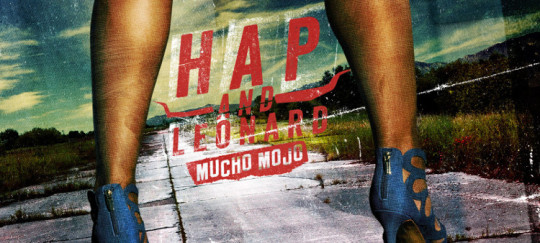
For DEN OF GEEK, David S.E. Zapanta enjoys the first episode of SundanceTV’s HAP AND LEONARD: MUCHO MOJO.
Overall, “Mucho Mojo” is a strong start. Six episodes may not seem like enough, but the first season covered a lot of ground in only six hours. I’m expecting more of the same this time around. And while I may be missing Christina Hendricks, this episode certainly doesn’t suffer from her absence. What matters is that Purefoy and Williams continue to work so well together.
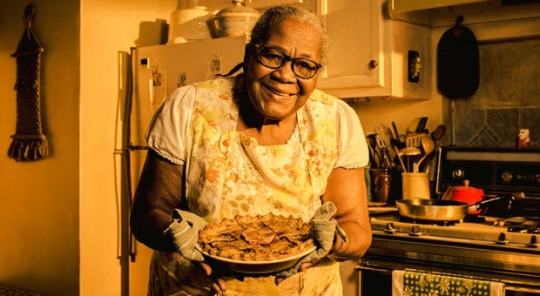
Irma P. Hall as MeMaw
Crime shows like Hap and Leonard may truck in violence, but a lot of their success also resides in humorous beats. There are some genuinely funny moments between Hap and Leonard, but Irma P. Hall’s elderly matriarch MeMaw is a real scene-stealer. She may laugh off Leonard pissing in drug dealer Melton’s face (as does much of the neighborhood), but she won’t suffer raunchy talk at her breakfast table.
Melanie Mcfarland at SALON discusses the series in “Me and you ain’t you and her”: How “Hap and Leonard” challenges TV’s portrayal of masculine friendship.
Strip away the so-called “swamp noir,” a label describing the East Texas twang born of a meeting between arid and sultry. Look behind the curtain of its murder mystery, which careens through turns that are at once predictable and obscenely unfair, and see Sundance’s “Hap and Leonard” for what it is — a wonderful platonic love story.
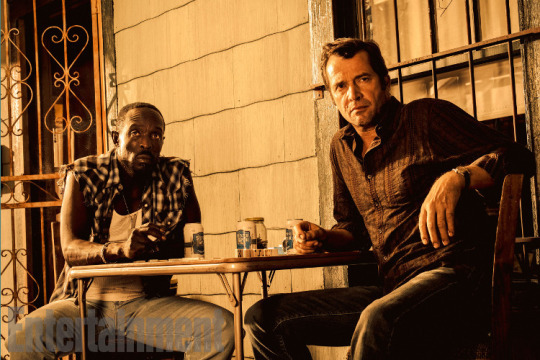
Leonard Pine (Michael J. Williams) and Hap Collins (James Purefoy)
Grounding “Hap and Leonard” in a devoted, affectionate male friendship goes counter to the standard vision of machismo or manly identity seen elsewhere on TV. Mind you, Hap Collins and Leonard Pine fit the popular concept of what it means to be masculine. (Leonard is a brawler, in fact. In the season premiere he beats a criminal senseless for urinating on his prized rosebush, topping off the incident by repaying the offense in kind.)
Since “Hap and Leonard” establishes the intensity of their brotherhood, it can take the audience into uncomfortable places and make broader topics of prejudice and injustice personal.
It’s not as if the first season of “Hap and Leonard” ignored the fact that Hap is a white ex-convict and Leonard is an African-American with dark skin having adventures in the Reagan-era South. The previous story was a caper involving Hap’s ex-wife Trudy (Christina Hendricks), who got them into trouble with nihilistic thugs. Television writers love to punctuate the villainy of such characters by having them sprinkle their vocabulary with epithets as casually as a smoker taps cigarette ash onto concrete. Leonard sustained his share of such abuse.
But the racial divide in the second season is distinct and purposeful, adding an anxious edge to Hap and Leonard’s interactions with the law — more specifically, Leonard’s troubles. And this new act makes “Hap and Leonard” into an allegory illustrating the senselessness of America’s racial divide, showing a community where black and white people live in close proximity while leading almost entirely separate lives. The drama may take place in the late 1980s, but its observations about law enforcement bias and the prejudice corrupting the judiciary are right on time.
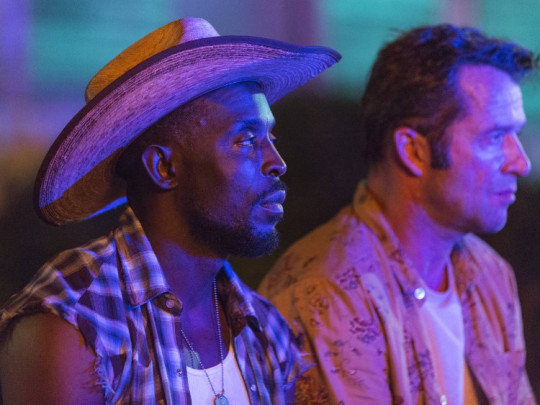
Barbed as its observations about race and class can be, “Hap and Leonard” nevertheless embraces its audience with liberal servings of humor and the heartfelt bond between the two leads. And actually, Hap’s crush on Florida serves to spotlight their enduring loyalty as opposed to splitting them, simultaneously speaking to the societal conflict threaded through this season.
“She black,” Leonard says to Hap, later adding, “And you ain’t.”
“That never stopped me and you,” Hap retorts, to which Leonard delivers the perfect rebuttal: “Me and you ain’t you and her.”
Leonard’s right. Plainly they mean much more to each other.
SUNDANCETV offers their second exclusive excerpt from Joe R. Lansdale’s HAP AND LEONARD: BLOOD AND LEMONADE.
Journey back in time to witness one of Hap and Leonard’s young adventures in this never-before-seen story by Joe R. Lansdale, “In the River of the Dead”.
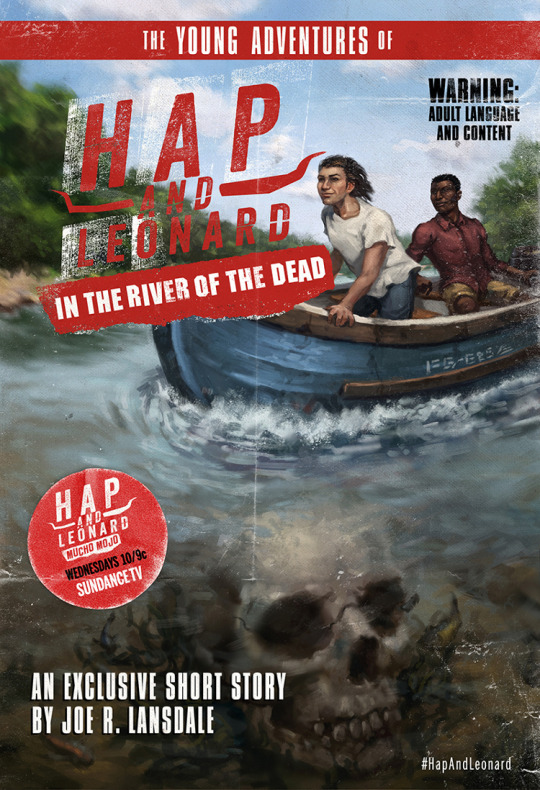
HAP AND LEONARD: IN THE RIVER OF THE DEAD — CHAPTER 1
We were seventeen when this happened, out fishing on the Sabine River.
What we learned was if we went fishing, sat in a boat and dragged some lines in the water, we might catch dinner for our night camp, but mostly we found out about each other. That’s how I learned about Leonard’s family, his feelings about being black and gay, and he learned about my family and me.
We drifted all day, had our camping supplies in the boat, and the plan was we would find a place to stop before nightfall. The boat was pretty good sized, an open boat. The outboard motor wasn’t strong on horse power, but it puttered us along as fast as we needed to go.
The river smelled sour because the day was warm. After we motored down a ways, we killed the engine and let the boat drift beneath the shade of the overhanging trees in the narrow part of the river. It was cooler there. The wind finally picked up, which was nice, because it blew the stink and the mosquitoes away from us.
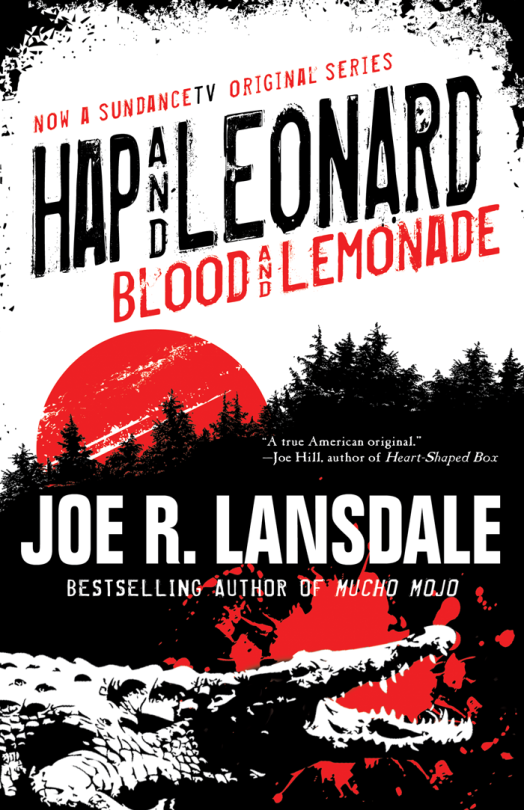
At ENTERTAINMENT WEEKLY, Joe R. Lansdale delivers a poignant tribute to his good friend Bill Paxton.
Bill Paxton died while I was at a hometown film festival I had hoped to rope him into attending. We thought 2018 was possible.
We talked about it in January when he told me he had to have surgery for a heart condition. Bill said he was starting to think every slight feeling he had was due to the discovery of the heart problem.
He said, “I’m an actor, Joe. I can imagine anything. Tell me I’m a dog and I start barking.”
He was a little scared about the whole business, and we joked about it to disarm his worries. I told him my brother had heart surgery more than once and was fine. We ended up laughing hard about all manner of things, most of them pretty silly, before we rang off.
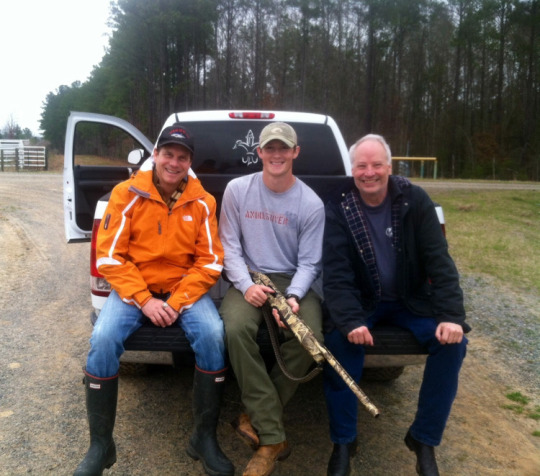
Bill Paxton, Jake Lansdale, and Joe R. Lansdale
I only knew Bill for seven or eight years, possibly a little more, but to know Bill for only an hour made it seem you had known him your whole life. He was a Ft. Worth boy, a Texan. Ft. Worth is where we met. At a film festival, of course.
He was what they used to call a boon companion. Witty, fun, considerate and kind. Nothing movie star about him.
In an IHOP in Nacogdoches, Texas, me and Bill and our mutual friend, Brent Hanley, screenwriter who wrote FRAILTY, a marvelous film Bill directed and starred in, were having breakfast, and Bill was recognized.
The waiter said, “You’re a movie star,” to which Bill replied with his usual modesty. “Well, I’m an actor.”
After breakfast, Brent and I went out of the restaurant, realized we had lost Bill. We soon discovered he was inside having photographs taken and signing autographs for anyone who asked, and he did it joyfully. He was thankful for his career, and for those who loved seeing him on the screen.
We spent the day tromping around in the river bottoms with my cousin, who was helping us locate possible locations for the film we hoped to make based on my novel THE BOTTOMS.
Next day we visited with my cousin’s family. Bill seemed as if he had grown up next door. Kind and considerate as he could be. Not a movie star bone in him. He made everyone comfortable.
Damn, I miss him.
For more info about HAP AND LEONARD: BLOOD AND LEMONADE, visit the Tachyon page.
Cover by Elizabeth Story
